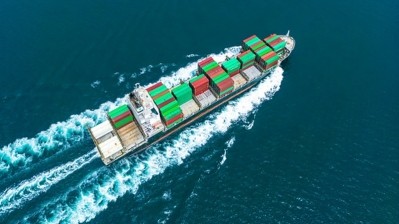Retort regulations: Australia tightens rules for imports containing meat, dairy and eggs

The country has a strong reputation for strict rules in the biosecurity department, recently making global headlines when Australian customs fined a passenger inbound from Singapore US$1,820 for an undeclared unfinished Subway sandwich in her purse.
The incident divided both the internet and the food industry alike, particularly after Subway stepped in to offer the passenger a Subway gift card for the value of her fine which drew ire from trade bodies such as the Red Meat Advisory Council (RMAC).
““It’s a national disgrace that Subway has thumbed their nose at Australia’s biosecurity arrangements and potentially encouraged a dangerous precedent for others to do the same,” RMAC Independent Chair John McKillop said in a formal statement.
“This is an appalling mockery of Australia’s biosecurity laws.”
The Australian Department of Agriculture, Fisheries and Forestry (DAFF) has also issued a statement highlighting that the passenger was indeed in violation of the local Biosecurity Act, and the passenger herself has admitted her mistake – but given the large amount of publicity this brought DAFF seems to have decided to step up its biosecurity measures to close any loopholes, this time for imports of retorted products.
“Effective November 15 2022, all retorted goods for non-personal use containing less than 5% meat will now need to present a Manufacturer’s Declaration statement on the product packaging to demonstrate compliance with biosecurity requirements,” DAFF stated via a separate statement.
“In this statement, the declarations must be made that the goods contain less than 5% meat, less than 10% dairy and less than 10% egg by dry weight, and there is no discernible pieces of egg.
“The statement must also include declarations that the product is commercially manufactured and packaged, that the retorted product container has not been opened since the retort process was completed and that it is commercially sterile and shelf stable without any requirements for refrigeration or freezing prior to the package being opened.
“It is also compulsory for the product name to be included in the declaration.”
These retorted goods do not need to apply for a DAFF import permit as long as the Manufacturer’s Declaration statement is complied with.
Retort products with higher animal content
For imports from New Zealand, this is the same for retorted products with less than 5% of animal product content, but the focus is primarily on avian meat and pork if it contains 5% or more animal product.
“Although a DAFF import permit is not required for retorted avian or pork meat from New Zealand, the goods mist have been hermetically sealed in a container before being heat treated to a minimum core temperature of 100°C and the final product must be imported in this same container it was retorted in,” said DAFF.
“The product carry a New Zealand Ministry for Primary Industries (MPI) certificate [that] declares this import condition has been met with, in addition to statements regarding the species of origin of the meat and that the animals are from Australian or New Zealand origin only; and a statement that this meat has been processed in premises under the supervision of and in accordance with MPI requirements.”
For retorted goods from all other markets that contain 5% or more animal product and are meant for human consumption, manufacturers will need to apply for and obtain the DAFF import permit prior to import.
This will require the submission of a relevant health certificate, further details of the retort process and a statement that the final product is imported in the hermetically sealed airtight container in which it was retorted.










